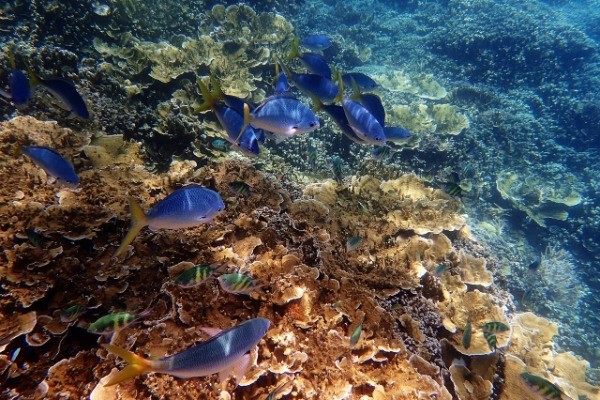Planning Your Trip to the Great Barrier Reef

The Great Barrier Reef is one of the most popular tourist destinations in the world. It is home to an incredible variety of marine life, including coral reefs, fish, turtles, and dolphins. The reef is also a UNESCO World Heritage Site.
If you are planning a trip to the Great Barrier Reef, there are a few things you should know. The best time to visit is during the dry season, which runs from May to October. This is when the weather is the most pleasant and the water is the clearest.
There are a few different ways to get there:
- By plane: Several airports serve the Great Barrier Reef, including Cairns Airport and Townsville Airport.
- By car: You can drive to Cairns or Townsville and then take a ferry or boat to the reef.
- By cruise ship: Many cruise ships offer trips to the Great Barrier Reef.
There are a variety of activities you can do on the Great Barrier Reef. You can go snorkeling, scuba diving, fishing, or simply relax on the beach. There are also several tours available that will take you to see the different parts of the reef.
It is important to be respectful of the environment when visiting the Great Barrier Reef. The reef is a fragile ecosystem, and it is important to take steps to protect it. This means not littering, not touching the coral, and not feeding the fish.
Finally, have fun! The Great Barrier Reef is an amazing place, and you are sure to have a wonderful time exploring it.
Here are some tips for planning your trip:
- Choose an environmentally friendly tour operator. Many tour operators offer trips to the Great Barrier Reef. Make sure to choose one that is committed to protecting the reef.
- Book your trip in advance. The Great Barrier Reef is a popular tourist destination, and it is important to book your trip in advance, especially if you are traveling during the peak season.
- Pack for all types of weather. The weather on the Great Barrier Reef can be unpredictable. Be sure to pack for all types of weather, including rain, sun, and wind.
- Bring sunscreen and insect repellent. The sun and insects can be strong on the Great Barrier Reef. Be sure to bring sunscreen and insect repellent to protect yourself.
- Stay hydrated. The humidity on the Great Barrier Reef can be high. Be sure to stay hydrated by drinking plenty of water.
- Take your time. The Great Barrier Reef is a big place. Don't try to see everything in one day. Take your time and enjoy the experience.
Here are some things you can do on the Great Barrier Reef:
- Snorkeling: Snorkeling is a great way to see the beauty of the Great Barrier Reef. You can swim among the coral reefs and see the fish and other marine life up close.
- Scuba diving: Scuba diving is a more immersive experience than snorkeling. You can go deeper underwater and see even more of the reef. [image srchttps://t0.gstatic.com/images?q=tbn:ANd9GcRMg95CrLk4bEuD-j9hvS3tS_HdqcS-y1Bs6PhMyzQ5t5m2sA4&s]Scuba Diving [/image] [/li]
- Glass-bottom boat tours: Glass-bottom boat tours are a great way to see the reef without getting wet. You can sit back and relax as the boat takes you around the reef, and you can look down through the glass to see the fish and coral.
- Fishing: Fishing is a popular activity on the Great Barrier Reef. You can fish for a variety of fish, including coral trout, snapper, and mackerel.
- Island hopping: There are many islands in the Great Barrier Reef. You can take a boat or cruise to different islands and explore them.
- Camping: There are several campgrounds on the Great Barrier Reef. You can camp on the beach or in the bush.
Here are some things you should avoid doing on the Great Barrier Reef:
- Littering: Littering is a major problem on the Great Barrier Reef. Be sure to pack out all of your trash, including food wrappers, sunscreen bottles, and cigarette butts.
- Touching the coral: The coral on the Great Barrier Reef is fragile. Be sure to not touch it, as this can damage it.
- Feeding the fish: Feeding the fish can disrupt their natural feeding habits. Be sure to not feed the fish.
- Swimming in areas with stingers: There are many jellyfish and other marine creatures that can sting
Add Your Comment
Use the following form to leave your comment on this article.
